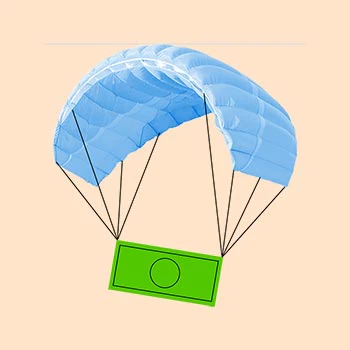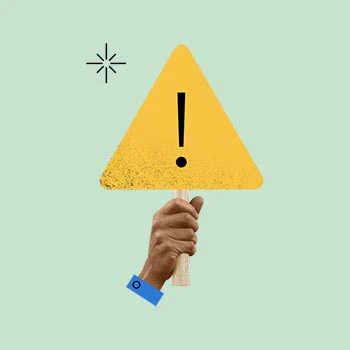Understanding Credit History
Your complete guide to credit history—what it includes, how it affects your financial life, and proven strategies to build a strong credit profile over time.
Credit history essentials: Your credit history is a detailed record of how you've managed credit and debt over time. It's the foundation of your credit score and affects your ability to get loans, credit cards, and even housing or employment opportunities.
Editorial Note: This guide provides educational information about credit history and credit building strategies. Individual credit situations vary, and results depend on consistent positive financial behavior over time.
What Is Credit History?
Credit history is a comprehensive record of your borrowing and repayment behavior maintained by credit reporting agencies (Experian, Equifax, and TransUnion). It includes every credit account you've had, payment patterns, account balances, and public records related to your financial obligations.
Key components of your credit history:
Record of on-time payments, late payments, missed payments, and defaults across all credit accounts.
How much credit you're using compared to your total available credit limits.
How long you've had credit accounts, including age of oldest account and average account age.
Variety of credit types including credit cards, mortgages, auto loans, and installment loans.
Recent credit inquiries and newly opened accounts.
How Credit History Develops Over Time
Typical Credit History Timeline
Months 0-6: Building Foundation
First credit account opened. Initial credit file established with credit bureaus. Limited credit history, often results in lower scores initially.
Months 6-12: Early History
Credit score becomes more stable as payment patterns emerge. Consistent on-time payments begin to show positive impact.
Years 1-2: Establishing Patterns
Credit utilization patterns establish. Multiple accounts may be added. Credit mix begins to develop. Scores typically improve with good habits.
Years 2-7: Mature History
Substantial payment history accumulated. Account age increases. Potential for excellent credit scores with consistent positive behavior.
Years 7+: Established Credit
Long credit history provides stability. Older negative items may fall off reports. Prime candidate for best rates and terms.
What's Included in Your Credit History
Account Information
- Account type and creditor name
- Date account was opened
- Credit limit or loan amount
- Current balance
- Payment history (24-84 months)
- Account status (open, closed, current, delinquent)
Public Records & Collections
- Bankruptcies (7-10 years)
- Tax liens (indefinitely or until paid)
- Civil judgments (7 years)
- Collection accounts (7 years)
- Foreclosures (7 years)
- Charge-offs (7 years)
Credit Inquiries
- Hard inquiries: When you apply for credit, stays on report for 2 years
- Soft inquiries: Background checks, pre-approvals, your own credit checks (don't affect score)
Sample Credit History Entry
Account Number: ****1234
Account Type: Revolving Credit
Date Opened: 01/2020
Credit Limit: $5,000
Current Balance: $750
Payment Status: Current
Payment History: ✓✓✓✓✓✓✓✓✓✓✓✓ (12 months on-time)
Last Payment: $250 on 12/15/2024
Responsibility: Individual Account
This example shows a healthy revolving credit account with consistent on-time payments and low utilization (15%).
Positive vs. Negative Credit History Items
| Item Type | Impact on Score | Duration on Report | Notes |
|---|---|---|---|
| On-time payments | Positive | Indefinite | Foundation of good credit |
| Low utilization | Positive | Current | Under 30%, ideally under 10% |
| Older accounts | Positive | Indefinite | Longer history = better |
| 30-day late payment | Negative | 7 years | Impact decreases over time |
| 60-90 day late | Very Negative | 7 years | More severe impact |
| Collections | Very Negative | 7 years | From date of first delinquency |
| Charge-offs | Very Negative | 7 years | Creditor writes off debt |
| Bankruptcy | Most Negative | 7-10 years | Chapter 13: 7 years, Chapter 7: 10 years |
| Hard inquiries | Slight Negative | 2 years | Minimal impact, temporary |
Building Credit History from Scratch
Step-by-Step Strategy for New Credit Users
- Start with a secured credit card - Use your own deposit as collateral
- Become an authorized user - Benefit from someone else's good credit history
- Apply for a student credit card - If you're a student, these have easier approval
- Consider a credit-builder loan - Specifically designed to establish credit
- Keep accounts open and active - Use cards occasionally to maintain activity
- Pay balances in full every month - Establish perfect payment history
Timeline for building credit from zero:
- Month 1-3: Credit file established, initial scores generated
- Month 6: More stable credit score as patterns emerge
- Month 12: Good credit score possible (670+) with perfect payment history
- Year 2+: Excellent credit (740+) achievable with continued good habits
Rebuilding Damaged Credit History
Recovery strategies for negative credit events:
Immediate actions:
- Stop missing payments immediately
- Pay down high balances
- Dispute any errors on credit reports
- Contact creditors about payment plans
- Consider debt consolidation
Long-term strategies:
- Establish consistent payment patterns
- Keep old accounts open if possible
- Add positive trade lines gradually
- Monitor credit reports regularly
- Be patient—recovery takes time
Recovery timeline after negative events:
- Late payments: Impact diminishes after 2 years, removed after 7 years
- Collections: Significant recovery possible after 2-3 years with good behavior
- Bankruptcy: 650+ scores possible within 2-4 years with perfect payment history
Common Credit History Myths
Myth: "Checking your credit hurts your score."
Truth: Checking your own credit is a soft inquiry that doesn't affect your score.
Myth: "You need to carry a balance to build credit."
Truth: Paying your full balance every month builds credit faster and saves money.
Myth: "Closing old accounts helps your credit."
Truth: Keeping old accounts open maintains your credit history length and available credit.
Myth: "Bad credit stays on your report forever."
Truth: Most negative items are removed after 7 years, bankruptcies after 7-10 years.
Credit History and Major Life Events
How credit history affects important financial decisions:
- Mortgage approval: 2+ years of solid credit history typically required
- Auto loans: Recent payment history most important for approval and rates
- Credit cards: History of revolving credit management crucial for approval
- Rental applications: Landlords often check for payment history and collections
- Employment: Some employers check credit for financial responsibility
- Insurance rates: Credit history can affect auto and home insurance premiums
Monitoring Your Credit History
Essential monitoring practices:
- Check credit reports annually from all three bureaus at annualcreditreport.com
- Monitor credit scores monthly through free services or credit cards
- Set up credit monitoring alerts for new accounts, inquiries, or score changes
- Review credit card statements monthly for accuracy and fraud
- Dispute errors immediately when found on credit reports
What to look for in your credit history:
- Accounts you don't recognize (potential fraud)
- Incorrect personal information
- Wrong account balances or payment history
- Accounts that should have been removed
- Duplicate accounts or charges
Questions about credit history
- How long does it take to establish credit history?
- You can establish a basic credit file within 3-6 months of opening your first credit account. A meaningful credit history that lenders trust typically takes 12-24 months of consistent positive activity.
- Can I have good credit with a short credit history?
- Yes, but it's more challenging. Focus on perfect payment history, low utilization, and gradually building your credit mix. Good credit (670+) is possible within 12-18 months with excellent habits.
- How far back do lenders look at credit history?
- Most lenders focus on the past 12-24 months of payment history, though they can see up to 7-10 years depending on the item. Recent positive activity carries more weight than old negative events.
- Does closing old accounts hurt my credit history?
- It can, in two ways: it may reduce your available credit (increasing utilization) and will eventually reduce your average account age when the closed account falls off your report after 10 years.
- Can someone else's credit history affect mine?
- Only if you have joint accounts, are an authorized user, or co-sign loans together. Otherwise, your credit histories remain separate, even for spouses.
- How do I build credit history if I can't get approved for credit?
- Start with a secured credit card, become an authorized user on someone else's account, or consider a credit-builder loan. These options are designed for people with no or poor credit history.
- What's the difference between credit history and credit score?
- Credit history is the detailed record of your credit accounts and payment behavior. Your credit score is a number (300-850) calculated from that history using mathematical models to predict your creditworthiness.
Building a Strong Credit History Takes Time
Remember that credit history is built through consistent positive financial behavior over time. There are no shortcuts, but with patience and good habits, you can build a credit history that opens doors to better rates, terms, and financial opportunities throughout your life.
Important information: Credit history development requires time and consistent positive financial behavior. Individual results vary based on starting credit profile, financial habits, and adherence to credit building strategies. The information provided is educational and should be considered alongside professional financial advice for your specific situation.
Credit Building: Building strong credit history is a long-term process that requires patience and discipline. Focus on sustainable habits rather than quick fixes, and remember that positive credit history becomes more valuable over time.
© 2025 CreditVana LLC. All rights reserved.








